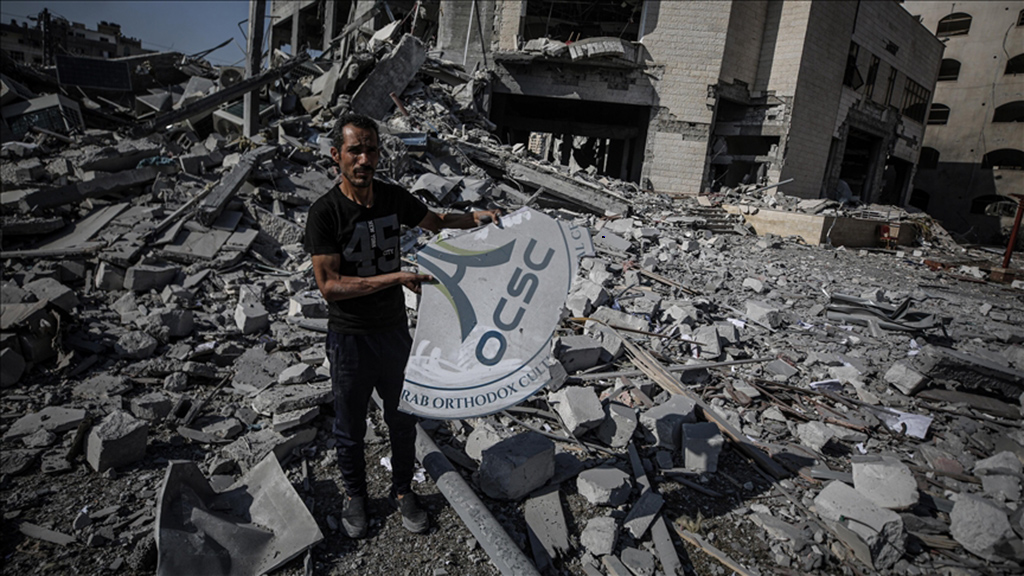The Biden administration hasn't fundamentally altered its unwavering support for Israel since the beginning of the crisis. However, in the face of heavy criticism from the international community, regional countries, and even its own party and American public, especially in the past two weeks, it has started emphasizing the humanitarian crisis more. As Washington increasingly finds itself isolated on the international stage, it has begun to add qualifiers, such as the need to protect civilians and ensure humanitarian aid access, while reiterating its full support for Israel. Reports have also suggested that Israel is preparing for a large-scale invasion of Gaza, but Washington is recommending a narrower operation that takes into account the safety of hostages and civilians. The change in rhetoric seems to reflect the administration's growing awareness of the need to alleviate public pressure.
Is it a Change in Rhetoric or Policy?
Of course, a change in rhetoric doesn't necessarily equate to a change in policy, and in this context, there won't be any reduction in Washington's support for Israel. For example, Secretary of State Blinken is calling for a 'humanitarian pause' in the operations, but Israel is making statements like 'it has the right and even an obligation to defend itself.' National Security Advisor Sullivan is saying, 'hospitals are not legitimate targets,' but refrains from directly criticizing Israel for targeting hospitals. President Biden is bringing up the need for humanitarian aid passage, but he's also requesting a $14.5 billion aid package for Israel from Congress. Therefore, the Biden administration is seemingly attempting to manage the political cost of having supported the Netanyahu government's ethnic cleansing policies through a game of words.
Netanyahu's Calculations
The cost of the Biden administration fully endorsing Netanyahu's politically calculated and civilian-targeted massacres has been significant. That's why reports suggest that the administration is trying to forestall a full-scale occupation by warning the Israelis about the scope, speed, and tactics of Israel's future Gaza operation. It appears that the administration is trying to quell the outrage caused by the civilian deaths so far and produce a more manageable cost moving forward. In contrast, it was already known that Netanyahu would prefer to spread the occupation of Gaza over time, as he couldn't prevent the October 7 attacks and initiated a bombardment that disregarded prisoners' lives.
Netanyahu, who has been criticized for starting the bombardment that he couldn't prevent and that ignored the lives of the captives, despite his tough rhetoric, will choose to spread the occupation of Gaza over time. The Biden administration, by leaking that it has persuaded Israel to pursue a 'more rational' strategy against Hamas, is trying to demonstrate that it is working to protect both the prisoners and civilians. Since it would also be in Netanyahu's interest for Israel to advance without suffering major losses, it seems that both sides have agreed to pursue different strategies for a ground operation.
The U.S. Isolated
The Biden administration's efforts to first offer full support and then emphasize the importance of the humanitarian crisis due to public pressure do not fundamentally amount to a policy change. The administration cannot exert effective influence either on restricting Israel's freedom of action or stopping the humanitarian crisis. Not only has Washington failed to show persuasive leadership, but it has also been condemned in the eyes of the international community for directly supporting Israel's occupation and war crimes. In the face of this equation that allows Russia and China to turn the 'hypocrisy of the West' into a diplomatic weapon, both the Arab world and Global South countries will distance themselves further from American leadership. Given the shift from claiming global leadership to being seen as an advocate for Israel, it will be extremely difficult for the Biden administration to repair this damage. From the beginning of the crisis, Washington has pursued a policy focused solely on managing public pressure.
To erase this performance that corresponds to giving up on the leadership claim strengthened by the Ukraine war, he needs a completely different crisis or convincing Israel to work for a lasting peace. As Washington has become a partner in Israel's policy of destroying Gaza, there is no longer any possibility of bringing fair peace in this crisis, making it very difficult for the administration to improve its poor rating.
[Yeni Şafak, November 1, 2023]







